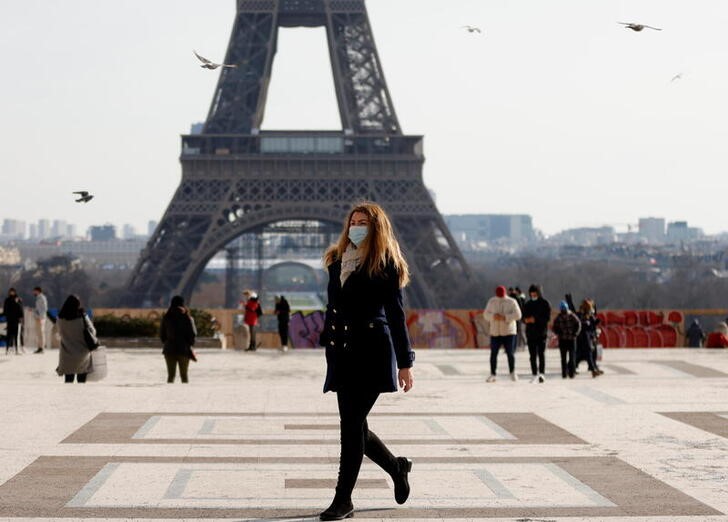Mass tourism has unleashed chaos in Europe, and residents are not standing by idly. In Barcelona, locals are targeting tourists with water guns, while protests erupt from the streets of Paris to the canals of Venice. The return of travel to pre-pandemic levels has left communities grappling with the consequences of an unchecked influx of visitors. As reported by CityLab, this backlash against mass tourism underscores the urgent need for systemic change in how we approach travel and its impact on local communities.
Tourism"s Toll on Local Communities
For years, Europe has been a playground for tourists, but the mounting pressures are becoming unbearable. Crowded streets, noise pollution, and a skyrocketing cost of living have left many residents feeling suffocated in their own neighborhoods. The once vibrant streets of Barcelona now echo with the sounds of water guns aimed at tourists, a symbolic act of defiance against a system that prioritizes profit over people. In cities like Venice, residents are protesting against the commodification of their culture, calling for a re-evaluation of tourism policies that favor short-stay platforms and wealthy visitors.
Government Responsibility and Accountability
The question of accountability looms large. Governments across Europe have welcomed the economic benefits of tourism, often at the expense of local residents. As reported by Transition Pathways, cities like Amsterdam and Venice have begun implementing higher tourist taxes and daily visitor limits at popular sites, but is it enough? Residents argue that these measures are mere band-aids on a much deeper wound inflicted by years of tourism-centric policies. They demand comprehensive reforms that not only protect their livelihoods but also preserve the integrity of their communities.
\n\n
These were 2023’s worst destinations for overtourism. Here’s how to ...
Short-Term Rentals and Housing Crisis
One of the most pressing issues arising from mass tourism is the impact on housing. In Cape Town, foreign buyers are pricing out local families, making homeownership a distant dream for many young South Africans. The so-called “born frees” generation, who were expected to access homeownership without barriers, faces mounting obstacles due to an unregulated rental market fueled by short-stay platforms. This trend is not isolated to Cape Town; it resonates throughout major tourist cities worldwide, where the allure of quick profits is dismantling the very fabric of local communities.
Environmental Consequences of Overtourism
The environmental implications of overtourism are staggering. Cities that once thrived on natural beauty are now suffering from the consequences of climate change exacerbated by increased foot traffic. As reported by CityLab, Texas is already facing a crisis with rising flood deaths linked to climate change, illustrating the urgent need for sustainable tourism practices that prioritize environmental stewardship. The fight against mass tourism isn"t just about preserving local culture; it"s also about safeguarding our planet for future generations.
\n\n
Tourists return to Paris post-pandemic but Asians, Americans ...
The Role of Activism in Shaping Policy
Activism has emerged as a powerful tool in the fight against the negative impacts of mass tourism. Local groups are mobilizing, demanding a seat at the table in discussions about policy changes. From protests to campaigns aimed at raising awareness about the environmental and social costs of tourism, the voices of those most affected are finally being amplified. This grassroots movement is a testament to the resilience of communities unwilling to accept the status quo. The future of tourism must prioritize the needs of locals, ensuring their voices are heard in the creation of policies that safeguard their homes and livelihoods.

![[Video] Anti-ICE Protester Pepper Sprayed as CBP Agents Disperse Crowd in Minneapolis](/_next/image?url=%2Fapi%2Fimage%2Fthumbnails%2Fthumbnail-1768260677127-y71sb7-thumbnail.jpg&w=3840&q=75)

![[Video] Several injured as U-Haul truck drives through Iranian protestors in Los Angeles](/_next/image?url=%2Fapi%2Fimage%2Fthumbnails%2Fthumbnail-1768176682028-q95y6j-thumbnail.jpg&w=3840&q=75)
![[Video] Scuffle breaks out between Trump supporters and Anti-ICE protesters in Times Square](/_next/image?url=%2Fapi%2Fimage%2Fthumbnails%2Fthumbnail-1768165958203-hgcgb-thumbnail.jpg&w=3840&q=75)


![[Video] Gunfire between Iraqi security forces and Sadr militias in Baghdad](/_next/image?url=%2Fapi%2Fimage%2Fthumbnails%2Fthumbnail-1768343508874-4redb-thumbnail.jpg&w=3840&q=75)
